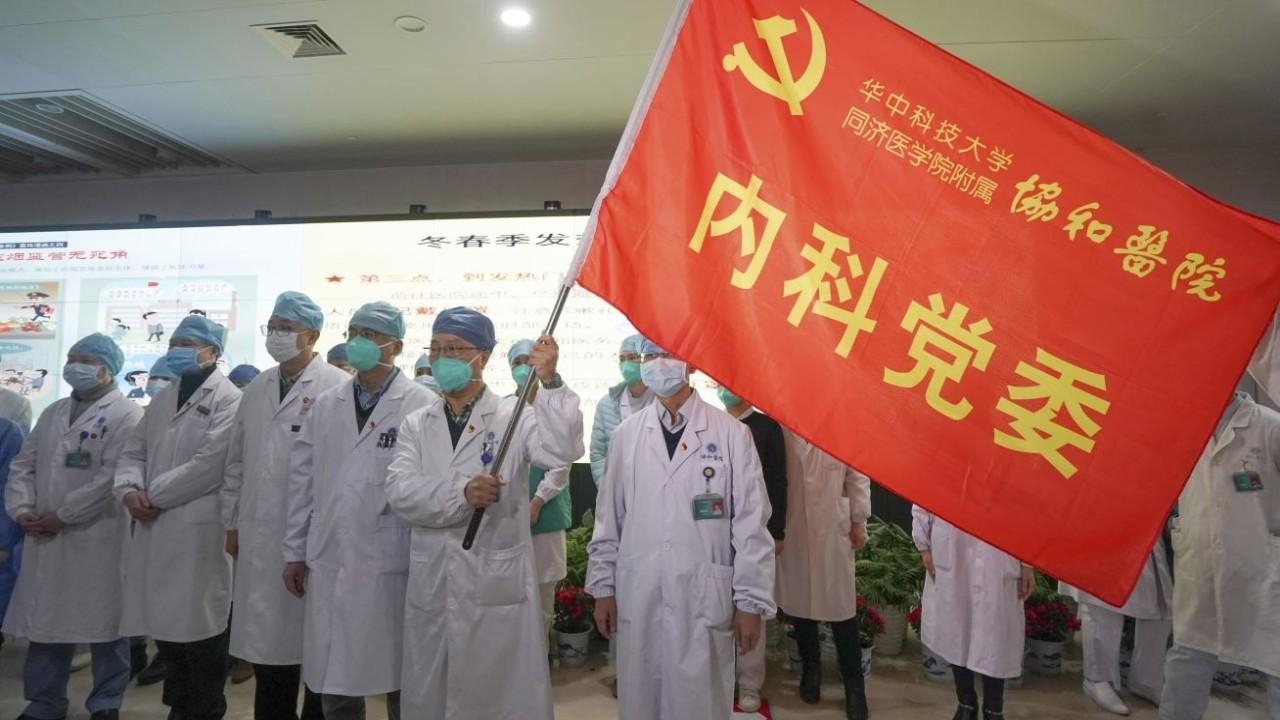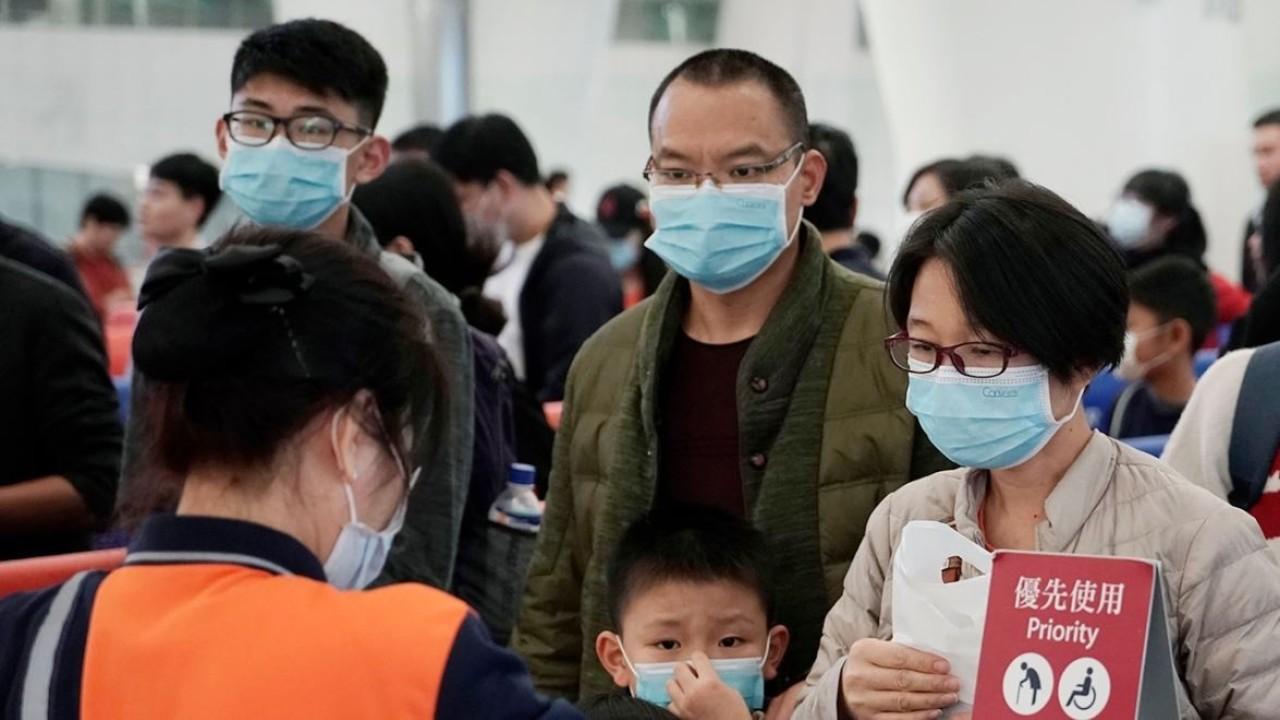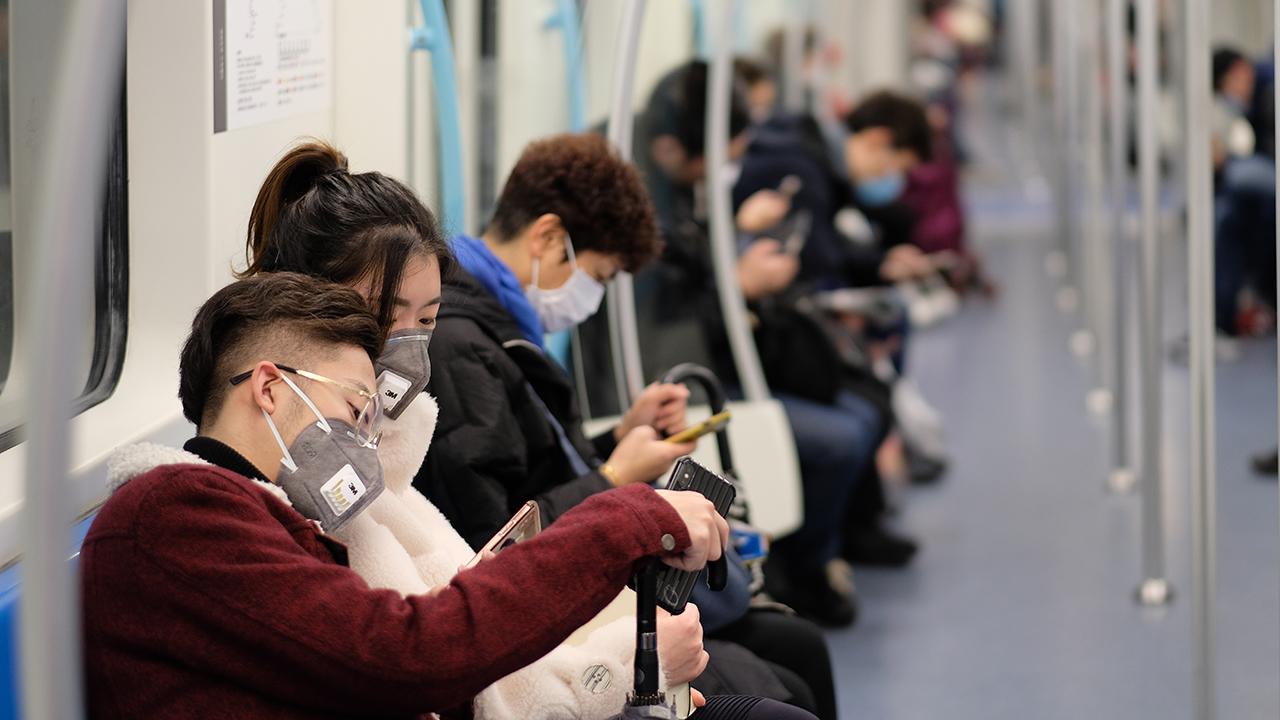Coronavirus 'not bothering' L'Oreal supply chain, CEO says
John-Paul Agon: 'We manufacture in a country what we sell in the country'
L’Oreal, one of the largest cosmetics companies in the world, is not feeling as much pain from the coronavirus, according to L'Oreal Global chairman and CEO John-Paul Agon. That's largely due to the fact the company tries to manufacture where it sells.
"The supply chain is impacted, but we find solutions, and no, of course, everything is made in China," Agon told FOX Business' Maria Bartiromo on Tuesday. "We manufacture in a country what we sell in the country, so what we manufacture in China is only for China or mostly for China, and the rest is just for the countries in Asia."
| Ticker | Security | Last | Change | Change % |
|---|---|---|---|---|
| LRLCF | L'ORÉAL SA | 474 | +0.00 | +0.00% |
Because of that, his company's global supply chain hasn't felt as many repercussions from the deadly viral outbreak.
MAKEUP SALES APPEAR WASHED OUT AS WOMEN GO AU NATUREL
"For example, in the U.S., we have our plants in Kentucky, in Arkansas, and we are manufacturing 75 percent of what we sell in the U.S. in the U.S. and then we export from the U.S. to the rest of the world," Agon said during "Mornings with Maria." "But globally speaking, the situation in China is not bothering us too much."
However, not all companies are like L'Oreal in this way.
Apple Inc.'s announcement Monday that it won't meet its second-quarter financial guidance because the output of iPhones has dropped due to the outbreak sent a chill through Asian markets on Tuesday.
On Jan. 28, Apple said it expected second-quarter revenue to be between $63 billion and $67 billion.
| Ticker | Security | Last | Change | Change % |
|---|---|---|---|---|
| AAPL | APPLE INC. | 278.12 | +2.21 | +0.80% |
| SSNLF | SAMSUNG ELECTRONICS CO. LTD. | 65.21 | +24.61 | +60.62% |
| SNE | NO DATA AVAILABLE | - | - | - |
| TSM | TAIWAN SEMICONDUCTOR MANUFACTURING CO. LTD. | 349.01 | +18.70 | +5.66% |
Production is ramping up slowly, the Cupertino, California-based company said, and demand in China is down because many of Apple's 42 retail stores there are closed or operating with reduced hours. China is Apple's third-largest retail market for iPhones, after the U.S. and Europe.
Supply chains for Apple and other high-tech firms stretch deep and wide across Asia. The announcement Monday caused shares in Samsung Electronics to sink 2.8 percent, while Sony Corp. fell 2.5 percent and computer chip maker TSMC dropped 2.9 percent.
CORONAVIRUS CASES CONFIRMED IN US DOUBLE TO 29 — WHERE THEY ARE AND WHAT TO KNOW
The outbreak struck just as makers of semiconductors and other components were looking forward to a recovery following a protracted downturn. For South Korea, Taiwan and Japan, weaker demand will slow recoveries in exports that had been expected to bounce back following the preliminary agreement between Washington and Beijing on ending a tariff war that has dragged on regional economies for nearly two years.
Agon insisted the coronavirus impact on industries is "going to be temporary" using the previous Severe Acute Respiratory Syndrome, or SARS, and MERS outbreaks as examples as to why.
TECHNOLOGY AT L'OREAL IS INFLUENCING HOW CONSUMERS PURCHASE COSMETICS
"The good thing, also, is that after it finished, there was really a bounceback of the consumption, so we are assuming that the same pattern will happen," Agon explained.
The rebound in manufacturing and other business activity after the outbreak of SARS in 2003 suggests the damage to manufacturing industries may be transient indeed.
But the blow to regional tourism could persist, given the much broader travel restrictions and precautions put in place by regional governments and the much higher number of people affected: SARS killed fewer than 800 people and infected only about 8,000.
CORONAVIRUS TREATMENT MAY COME FROM AN UNEXPECTED PLACE
However, some aren't as optimistic. Companies are warning their bottom lines will take a hit, and governments are ramping up stimulus measures for economies that just weeks ago were hoping to see recoveries after months of uncertainty due to trade tensions and slowing global growth.
Many in Asian countries were hoping that an easing of trade tensions thanks to a truce between the U.S. and China in their tariff war would help revive sluggish trade this year. The virus outbreak has sideswiped the region with a raft of new, potentially much broader uncertainties.
CLICK HERE TO READ MORE ON FOX BUSINESS
Asian economies have grown increasingly reliant on trade with China and tourism catering to growing legions of Chinese travelers. The other regional powerhouse, Japan, saw its economy, the world's third-largest, contract by 6.3 percent in annual terms in the last quarter of 2019, even before the virus outbreak spiraled into a crisis.
The coronavirus that began in China has infected more than 73,000 people globally, killing at least 1,868 people in mainland China alone.
The Associated Press contributed to this report.
GET FOX BUSINESS ON THE GO BY CLICKING HERE






















